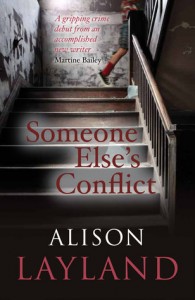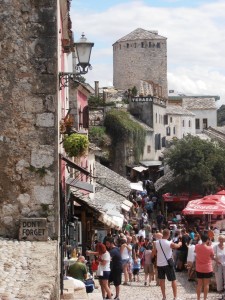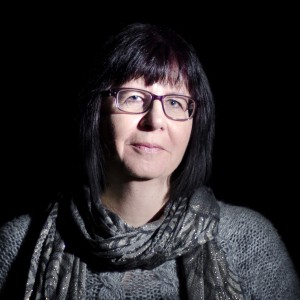Writing About War
While researching for my novel, Someone Else’s Conflict, I found myself asking a number of interesting, sometimes disturbing, questions about my decision to set the backstory in the 1990s Croatian conflict.
a number of interesting, sometimes disturbing, questions about my decision to set the backstory in the 1990s Croatian conflict.
During the conflicts following the break-up of Yugoslavia, the war in Croatia was gradually overshadowed by the shocking events in neighbouring Bosnia-Hercegovina. While I wanted to remind people of a conflict that remains little known outside the region, was it legitimate to drag up aspects that would rather be forgotten in a modern EU state that is very much looking to the future? A country I have grown to love.
But history needs to be understood if it is to provide lessons for the present, and the tragedy of the 1990s Balkan conflicts, the worst to be fought on European soil since the World Wars, should surely not be forgotten.
On 5 August, Croatia will be celebrating its independence on the anniversary of Operation Storm, the offensive that effectively brought an end to the Croatian War of Independence (known in Croatia as the Homeland War). Independence, and what has been achieved since, are certainly cause for celebration, but the events of August 1995 are seen in a very different light by others, the Serbs and Bosnians who suffered at the hands of Croatian forces.
While writing and researching the novel, I enjoyed some wonderful travels through Croatia, Bosnia-Hercegovina and Serbia. One of the places I visited was Mostar in Bosnia, famous for its beautiful 16th-century bridge that was destroyed in the war and has since been rebuilt as a symbol of unity, peace and hope. Around the bridge and along the riverside is a bustling bazaar, full of character, but only a short distance away the scars of war are still shockingly apparent.
 Among the stalls and the crowds, my eye was caught by a small stone with the inscription DON’T FORGET. At first, I saw this as a poignant memorial, but later began to wonder to what extent, in a town whose ethnic divisions are still only just below the surface, it might be perpetuating animosity and grievances. I am still not sure, but I certainly agree that history should not be forgotten.
Among the stalls and the crowds, my eye was caught by a small stone with the inscription DON’T FORGET. At first, I saw this as a poignant memorial, but later began to wonder to what extent, in a town whose ethnic divisions are still only just below the surface, it might be perpetuating animosity and grievances. I am still not sure, but I certainly agree that history should not be forgotten.
When I received my publishing contract from Honno in February 2014 I was, of course, delighted – it was the culmination of years of hope and hard work! But insecurity and self-doubt soon mingled with the elation as my dreaded inner critic made its appearance. I’m sure most authors worry how their books will be received, but my own fears were exacerbated as the prospect of publication prompted me to question choosing such a controversial setting for the novel’s backstory.
The main character of the novel, Jay Spinney, is a storyteller who has chosen an itinerant life, using his stories and his lifestyle as a way of hiding a dark past: his involvement in the Croatian war. At first I felt I was not ‘qualified’ to write about it, which led me to sit on the fence by setting the conflict in a fictional state in the region. I eventually realised this was not working, so I grasped the nettle, immersed myself in even more research, and located it in Croatia. Dalmatia was one of the areas in the Balkans I had come to know best in recent years, and inland Dalmatia was where, in 1991, the Serbs declared their self-proclaimed Republic of Serbian Krajina, where the Croatian war began.
 I am not a political commentator, nor was it my intention to be, and I was careful not to take sides – atrocities happen on all sides in a civil war, and it was war itself that I was questioning. I tried to make sure I gave a balanced view. In particular, the past events portrayed in the form of flashbacks took place in a fictional village, perpetrated by a renegade leader bent on vengeance. The flashbacks themselves are often quite impressionistic. Nevertheless, my inner critic kept asking me who was I to be writing about this?
I am not a political commentator, nor was it my intention to be, and I was careful not to take sides – atrocities happen on all sides in a civil war, and it was war itself that I was questioning. I tried to make sure I gave a balanced view. In particular, the past events portrayed in the form of flashbacks took place in a fictional village, perpetrated by a renegade leader bent on vengeance. The flashbacks themselves are often quite impressionistic. Nevertheless, my inner critic kept asking me who was I to be writing about this?
Even the novel’s title, Someone Else’s Conflict, took on a new meaning. Originally I intended it to refer both to Jay’s involvement in a foreign war and, more figuratively, to the present-day relationships in the story. But now the title also referred to me.
I wondered whether someone who ‘wasn’t there’, who has been fortunate never to experience war, could write meaningfully about a specific conflict. And, was it right to use another people’s troubles for the sake of a story? Once I silenced my inner critic, I was happy to answer yes to both.
Of course, I told myself, many novels and stories deal with events or issues beyond the writer’s personal experience. One of the most fascinating things we do as writers is use our imaginations, backed up by good research, to explore situations we (and our readers) might not otherwise encounter. Most importantly, fiction is about the story and the characters. Having made the background as correct and plausible as possible, you then set your story, the emotions and reactions of the characters, the fruit of your imagination, against it.
As to whether using the suffering of others was in some way gratuitous, my answer lay in the novel itself. Storytelling plays a substantial part in the novel. People have always told stories, not only for entertainment, but also to make sense of the world. We are often drawn to the dark side, yes, but not only for the frisson of the unfamiliar. We are also trying to understand it, and hopefully to learn from it.
And so I moved on from my self-doubt. My inner critic made a final, brief appearance, admonishing me for what might be considered arrogance – what made me think my fiction is important enough to cause offence anyway? But ultimately I came to appreciate my novel for what it is. First and foremost a story, one of love and friendship as well as intrigue – but if it is one that makes people think, so much the better.
The way I portray the cnflict scenes is vivid but deliberately impressionistic – mainly because it suits my story for it to be like that – but even so, I hope that it will inspire some readers to find out more.
—
Alison, a writer and translator, lived in various parts of the UK before settling in Wales in 1997, with her husband and two children. After studying Anglo-Saxon, Norse and Celtic at Trinity College, Cambridge, she pursued an 8-year career as a chartered surveyor before returning to her first love, languages, to become a freelance translator from German, French and Welsh (she is currently trying to learn Croatian as an indirect result of research for her novel).
She has published a number of novels translated from German and French; her own debut, Someone Else’s Conflict, is published by Honno Welsh Women’s Press
Find Someone Else’s Conflict at: UK and US
Connect with her at: www.alayland.uk
Facebook https://www.facebook.com/AlisonLaylandAuthor
Twitter: @AlisonLayland
Category: Contemporary Women Writers, On Writing
Comments (8)
Trackback URL | Comments RSS Feed
Sites That Link to this Post
- Guilty Landscape | CHICADEROCK | August 8, 2015
- Guilty Landscape : Women Writers, Women's Books | August 4, 2015

























Hi Alison, a great article! You put to words some of the things I was also thinking about, regarding my historical fiction novel in process. Then you gave me other things to think about, always something to learn. What first attracted me to your article was the topic of war, but then I noticed what war, Croatian. The history of my husband’s surname is Croatian, dating back to 7th century ( not the genealogy). As far ss we know there are no direct relatives living in Yugoslavia which was the last connection. I’m currently writing a fiction novel about my family’s Scottish heritage, We traveled to Scotland this year to visit the places I am writing about. I told my husband that I should do his side of the family next as the history was so interesting. I was encouraged to see that you travelled and researched in Croatia. Living in Canada, it seems like a far away place. First I need to finish book one, 😊 I would like to read your book, I have to be careful not to get distracted, plus I am recovering from a concussion so my screen time/reading is limited. Regards from Canada 🇨🇦
Hi Linda,
I’m so glad you enjoyed the article and found it helpful. I know what you mean – my current novel is on a completely different topic, much closer to home, but there’s always so much to learn! It’s fascinating to hear about your husband’s background and I hope you get to visit Croatia sometime and research the family history more – we’ve just got back from holiday on the island of Brač and had a wonderful time as ever (and apologies for the delay in replying). I hope you enjoy Someone Else’s Conflict when you get the chance to read it and in the meantime wish you all the best with your Scottish novel!
This was a good read. I think you were right on when saying “history needs to be understood if it is to provide lessons for the present”. I have learned so much about the past from stories/ novels. Way more than any history book I trudged through in school. Also for an American reading historical histories from other parts of the world help me to remember we are not isolated or unique. Adding this book to my TBR list.
Hi Terri,
So glad you appreciated this. Yes I agree – although for my research I did read a lot of non-fiction, I also learn so much myself about so many periods and aspects of history from well-researched fiction and stories – I think partly because the emotional involvement of a story helps the facts and background to sink in and stay with me. Many thanks for your interest!
Thanks for your response, Betsy – I completely recognise the pre-publication feelings you describe and, like you, reassurances both from readers and from writers who have felt similarly really help dispel and keep at bay the doubts I describe.
What’s your novel?
I love this: “As to whether using the suffering of others was in some way gratuitous, my answer lay in the novel itself. Storytelling plays a substantial part in the novel. People have always told stories, not only for entertainment, but also to make sense of the world. We are often drawn to the dark side, yes, but not only for the frisson of the unfamiliar. We are also trying to understand it, and hopefully to learn from it.”
This essay resonated with me. I too took on war as a subject and very much from the outside, civilian perspective. The closer I got to launch, the more I found myself examining every aspect of my novel wondering, worrying about its reception from all sides of the subject. I constantly took my pulse as I wrote the novel, asking the same question about using the suffering of others in a way that was not right. The answer is no. I’ve learned, as you have, that this is the job of a story teller — to try in our own way to make sense of the world and to offer a window for others if they choose to look. As readers share with me their impressions of the book, I’ve been reassured time and time again that this is how it is working.